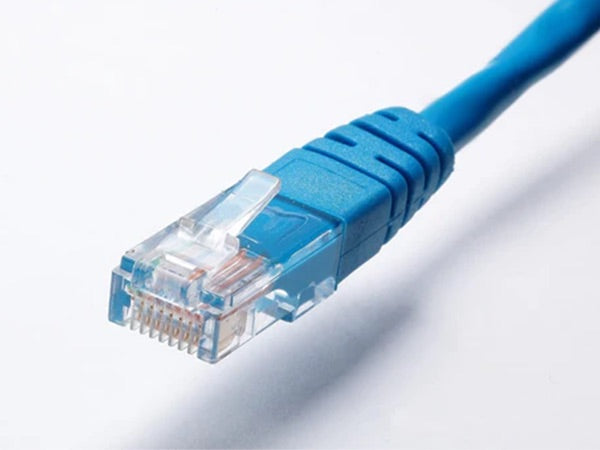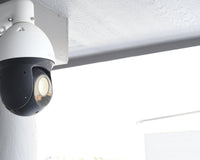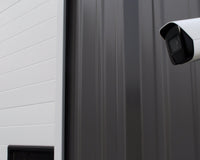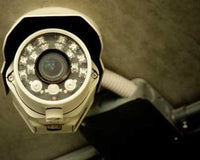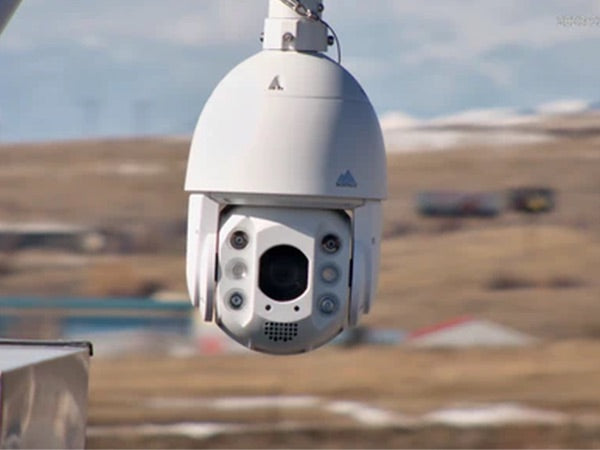Pros and Cons of Wired vs Wireless Security Systems
When it comes to protecting your property, a security system is an important investment. One distinction you’ll see when researching security systems is between wired and wireless camera systems. It is essential to consider both the pros and cons of these systems to ensure your system ends up meeting your needs. In this article, we will compare the benefits and drawbacks of wired and wireless security systems, so you can make an informed decision.
Connection Stability:
Wired security systems have a more stable connection than wireless, as they are not subject to interference from other devices or environmental factors. Even household devices such as microwaves emit strong enough radio waves to upset the wifi connections used by wireless security cameras.
Network Security:
Simply put, a wired connection will always be more secure than a wireless connection. This is due to the fact that to hack into a wired system, one would need to connect to it physically, whereas with a wireless connection a bad actor may be able to intercept traffic over wifi. This can even be used as a gateway to your network, leaving your home and data vulnerable. Wireless systems depend on an internet connection, while a wired system can function entirely independently - isolated from outside threats.
Costly Cloud Storage Options:
One main distinction between various camera system types is where the footage is stored. Most wireless cameras store recordings in the cloud and often require an expensive monthly subscription. Wired systems store footage locally, eliminating the need for a monthly subscription.
Cloud Storage vs Local Storage:
Cloud-based options aren’t just more expensive to maintain, they also have some significant limitations. A primary limitation is that, since the footage needs to be uploaded to the cloud - if your internet goes out - your cameras stop recording, potentially going down when you need them the most. Their performance will also fluctuate based on internet speeds and congestion; they can also take up valuable wifi bandwidth in your home; a wired system will have close to no impact on your home network.
With cloud-based storage, data is also in the hands of large corporations which have a dubious track record of maintaining customer privacy. With a wired NVR system, the footage is stored locally so you don’t have to worry that your data is being handled improperly or insecurely.
It may seem worth it to make some trade-offs for the convenience of cloud access, however, most wired systems (such as those from Montavue) will have the capability to log in remotely and view footage on the go straight from your NVR. All of the luxury of cloud-based storage, without relinquishing your data to big corporations.
Changing Batteries:
Wireless security cameras are powered by batteries, which need to be changed periodically. This can be hard to remember, and a hassle; especially for cameras that are difficult to reach, let alone if you’re on vacation, are a snowbird, or if this is for a second home.
Motion-Only Recording for Most Wireless Cameras:
In order to preserve battery life, most wireless cameras only record when motion is detected. This can result in gaps in recorded footage and is at the mercy of the low-power motion detection systems working perfectly. A wired security system, on the other hand, is able to be configured for continuous recording - as well as motion detection. With customizable storage options, as well as the ability to add external storage units, you can ensure you have any event recorded.
Dependence on Internet Connectivity:
Wireless security systems rely on an internet connection to transmit video footage. If the internet goes down, the security system will stop recording. Wired systems are not dependent on an internet connection, ensuring they will continue functioning even if the internet goes down. Furthermore, footage uploaded using a cloud-based option will often be highly compressed when compared to the crisp high resolution footage you can expect from a physical connection to your NVR.
Wifi Jammers:
Wireless security systems can be disrupted by wifi jammers, which can be easily purchased online. Wired security systems are not subject to this type of interference.
Ease of Installation:
Wireless security systems are relatively easy to install, as they only need the cameras to be mounted and powered. Wired security systems need cabling to each camera, which can be cumbersome. Fortunately, PoE technology simplifies installation by requiring only a single cable run for data and power. New developments in ePoE (Extended Power over Ethernet) now allow for installation up to 800 meters away, which is considerably farther than a standard wifi connection will support. The ease of installation with wireless cameras comes with the trade-off of having to change batteries, in contrast, a wired system will be plug-and-play and set-it-and-forget-it as far as routine maintenance.
Operating Temperature Range
Due to the power limitations of internal batteries, wireless security cameras typically have a smaller operating temperature range than wired cameras. Montavue cameras have a wide range of operating temperatures, including our new MTB180 which can operate between –40 °F and +140 °F (–40 °C to 60 °C). Our cameras regularly tough out the brutal Montana winters, if this is a concern for you be sure to check the operating temperature range of any product you are considering.
Intercompatability
One thing to always pay attention to when researching security systems is something called ONVIF standards. These are a set of communication standards and protocols that allow many modern security systems to integrate with each other. Most high-end or commercial-grade surveillance systems will support ONVIF, however many of the lower-end or all-in-one options will not adhere to these guidelines. The ability to interoperate with other manufacturers’ equipment means, that if you purchase an ONVIF-compatible NVR you can later add additional equipment to the system - keeping your system cohesive and well-integrated. Having a few all-in-one cameras in your home can be a real hassle if they do not play well together, so it is advised to be aware if your equipment is ONVIF compliant. If you decide to go with a Montavue system, you can be assured that all of our cameras are ONVIF compliant.
Making the Best Choice for You
Wired and wireless security systems have their pros and cons. For the most part, a wired system will be much more robust. While a wired system will typically be more expensive at initial installation, it will be much more feature-heavy and stable. Furthermore, when the cost of ownership is considered, a wired system will pay for itself compared to the monthly subscription fees associated with wireless cameras.

